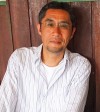 Noboru Ishikawa
Noboru Ishikawa
Anthropology
Center for Southeast Asia Studies, Kyoto University
(Profile)
Noboru Ishikawa is a Professor of Social Anthropology at the Center for Southeast Asian Studies, Kyoto University. He obtained his Ph.D. in Anthropology from the Graduate Center, City University of New York and is the author of a range of articles on the borderlands and riverine societies of Borneo (Sarawak and West Kalimantan), nation and identity, transnationalism, and political economy of the Malay world.
His publication includes Dislocating Nation-States: Globalization in Asia and Africa (2005), Between Frontiers: Nation and Identity in a Southeast Asian Borderland (2010) and Transborder Governance of Forests, Rivers and Seas (2011).
 Ryoji Soda
Ryoji Soda
Geography
Graduate School of Literature and Human Sciences, Osaka City University
(Profile)
Since 1995 when I was a master course student of Kyoto University, Sarawak has been my main research site. Although I have been interested in human mobility of indigenous peoples and rural-urban interactions in Sarawak and Southeast Asia, a few years ago I was asked to do research on floods and riverbank erosion, which drove me to do study on riverine society and culture of disaster.
What I am aiming in this project are; 1) to construct a model of riverine society by doing research on human mobility and inter-ethnic relations along the Jelalong/Kemena river, and 2) to make clear the human-nature interactions from the viewpoint of riverine disasters, partly by collecting disaster-related narratives including myths and oral traditions, and partly by articulating such information with more scientific data provided by hydrologists and forestry ecologists.
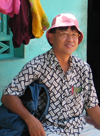 Yasuyuki Kono
Yasuyuki Kono
Southeast Asian Studies, Natural Resources Management, Livelihood Studies Center for Southeast Asia Studies, Kyoto University
(Profile)
I have been conducting research studies on land use, water-resource management, agricultural technologies, forest preservation, the process of development in rural areas, ecological history in Southeast Asia countries including Thailand, Laos, and Vietnam and Unnan province of China, Cambodia, Myanmar and Indonesia.
In recent years, I have been trying to broaden field of studies to coastal areas which have distinct resource characteristics. I have been working to make the concept of a biomass society by seeking a sustainable way of living. In order to make a comprehensive analysis on the social development of rural areas, I focus attention on the shift of way of living in those areas.
 Kaoru Sugihara
Kaoru Sugihara
Global history, Asian economic history
National Graduate Institute for Policy Studies
(Profile)
My field of study is the Asian economic history from 19th century, particularly the trading history in this region. In recent years, I have broadened my perspective and have been working on an international project to pursue global history study. My focus is to explain the path of industrialization and economic development of Asia within historical context.
Unlike Western society, industrialization in Asia is not characterized by capital intensification but rather labor intensity. Asian economic development has been achieved within the framework of resource-saving structure in order to overcome the constraints of land, materials and energy resources.
The project, Global COE Program “In Search of Sustainable Humanosphere in Asia and Africa” is now in its closing phase and I am working on to categorize the process of development in tropical areas in Asia and Africa. The process in those areas has been different from the one in temperate regions as the forms of water and energy resources have a wide variety and need more attentions to deal with uncertainties.
In this Kiban-S project, I would like to overview the transformation of some part of the Southeast Asia into a high biomass society through the process of industrialization and globalization. I would like to study the impact of this change from global historical standpoint.
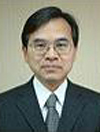 Kosuke Mizuno
Kosuke Mizuno
Agricultural Economics
Center for Southeast Asia Studies, Kyoto University
Naoko Tokuchi
Forest Ecosystem Ecology
Field Science Education and Research Center, Kyoto University
(Profile)
I have been studying on physical cycle in nature. A variety of substances circulate in natural environment and some of them are taken up by plants and ultimately lead to forest growth. This natural cycle offers us with so-called ecosystem services.
I want to know how land use change in Malaysia affects the physical cycle and what happens to the forest. What impact does this have upon the ecosystem service? Do people who enjoy the ecosystem service detect the signs of change? In this project, I would like to pursue the answers for these questions.
![]() Motomitsu Uchibori
Motomitsu Uchibori
Cultural Anthropology/Ethnology
Faculty of Liberal Arts, The Open University of Japan
(Profile)
I have a gut feeling that this project could bring an interesting sample of racial interactions and the logic of ethnogenesis in central Sarawak. On this occasion, I will tackle my research in a village of Bukitan along the Penyarai River, a tributary of Kakus.
I believe that this project offers a great opportunity for young researchers to have hands-on experience in the field.
As of the moment I have been back in my study of the people in the peripheral areas of the forest in central Madagascar. I will juggle both works for the time being.
 Miyako Koizumi
Miyako Koizumi
Ecological Anthropology
Graduate School of Agriculture, Kyoto University
(Profile)
I have been studying on the life of people in the forest of Borneo. Those indigenous people have profound knowledge of their forest and their lives have been heavily dependent on the natural resources of the forest. Today, however, forest degradation has become a major issue in Borneo.
I would like to deviate a little bit this year, from what I’ve been studying and focus on the study of sustainable use of the forests.
I want to make a research on the vegetation of commercial logging sites. Also, I’d like to have a workshop for the local members of logging firms and our collaborators on how to make botanical samples or how to identify the plants and trees.
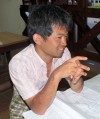 Hiromitsu Samejima
Hiromitsu Samejima
Ecology
Center for Southeast Asia Studies, Kyoto University
(Profile)
I have been working in Sabah, Borneo to establish a method for biodiversity research of mammals in forests to contribute for a sustainable forest management.
In this project, my focus is on the mammals in the forest, especially the ecology of wild boars. I would like to make it clear that how the ecology of this wild animal affects the way of living of the people in the forest.
On top of that, as a management staff, I’ll keep it in mind to give assistance to make this project productive and rewarding.
Samejima H. and Semiadi G. 2012. First record of Hose’s Civet Diplogale
hosei from Indonesia, and records of other small carnivores in the
Schwaner Mountains, Central Kalimantan. Small Carnivore Conservation.
46: 1-7
Langner, A., Samejima, H., Ong, R. C., Titin, J., and Kitayama, K. 2012.
Integration of carbon conservation into sustainable forest management
using high resolution satellite imagery: a case study in Sabah,
Malaysian Borneo. International Journal of Applied Earth Observation and
Geoinformation. 14: 305-312
Samejima, H., Ong, R., Lagan, P., and Kitayama, K. 2012 Camera-trapping
rates of mammals and birds in a Bornean tropical rainforest under
sustainable forest management. Forest Ecology and Management. 270: 248-256
Samejima, H. and Ong, R. 2012.
“Distribution of Mammals in Deramakot &
Tangkulap Forest Reserves, Sabah, Malaysia”.
Kyoto Working Papers on
Area Studies No.129
Fujita, S. M., Irham, M., Fitriana, Y. S., Samejima, H., Wijamukti, S.,
Haryadi, D. S., and Muhammad, A. 2012 “Mammals and Birds in the Bukit Batu area of Giam Siak Kecil – Bukit Batu Biosphere Reserve, Riau,
Indonesia” Kyoto Working Papers on Area Studies No. 128
 Motoko Fujita
Motoko Fujita
Bird Ecology
Center for Southeast Asia Studies, Kyoto University
(Profile)
In the environment under the influence of mankind, the land use by local people often determines the fate of many wild species. The living organisms are different in a rural environment and in an urban setting. I have been studying on the impact of human-induced environments to the bird life; what difference does it make to the ecosystem function of the bird. In Japan, Malaysia and Indonesia, I have focused on the transportation of the nutrient salts: nitrogen and phosphorus.
In this project, I would like to pick up edible bird’s nest which is an important export product of this area. By focusing on the nest of Swiftlet, I will examine the impact of land usage and its sustainability. In addition, I would like to study on the transportation of materials within the ecosystem.
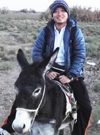 Osamu Kozan
Osamu Kozan
Hydrology
Center for Southeast Asia Studies, Kyoto University
(Profile)
I focus on the peat land spread across the Southeast Asia far and wide. Using “water/heat cycle” and “sustainability” as global keywords, I am working to establish a method of evaluation on the influence of grand-scale tree planting to the ambient environment.
Currently, in West Kalimantan, conducting the monitoring and modeling work of water/heat cycle and CO2 dynamics to evaluate the sustainability of major-scale tree plantation. In Sarawak, my target is to construct a hydrological dynamic model and a method of assessment which measure the influence of land use change, how it affects the water quality and the river flow.
 Keitaro Fukushima
Keitaro Fukushima
Forest Ecosystem Ecology
School of Urban Environmental Sciences, Tokyo Metropolitan University
(Profile)
My field of study is to figure out the system of material cycle in forestry ecosystem. I have been working on chemical analysis of plants, soil and stream waters for ten years. Currently, I am conducting a research to show cause-and-effect relationship between land use and water quality. To pursue this goal, I expanded the subject of my research to include downstream sites, dam lakes and coastal estuary.
I was fortunate enough to be the member of this project and could widen my research site to Malaysia. In Malaysia, I witnessed a large-scale form of land use which Japan would never be able to adopt. I wonder how much trouble is there and how deep those issues are in those areas.
I would like to collect the samples of river water in order to explore the mechanism of water production. At the same time, I will keep it in mind to pay attention to local people’s social value and their views of their lives.
I am thrilled to have an opportunity to work together with researchers from other field of studies.
 Makoto Tsugami
Makoto Tsugami
Cultural Anthropology
Liberal Arts, Tohoku Gakuin University
 Katsumi Okuno
Katsumi Okuno
Cultural Anthropology
College of Liberal Arts, J.F.Oberlin University
(Profile)
I conducted two-year research among the shifting cultivators, the Kalis of West Kalimantan, Indonesian Borneo between 1994 and 1995, focusing on shamanism and sorcery.
Since the end of the 1990’s I shifted to Sarawak and then I have had research among the Maloh, the Iban and the Penan communities.
My major concern is on the relation between men and animals, culture and nature among the people in Borneo.
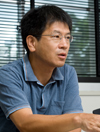 Masahiro Ichikawa
Masahiro Ichikawa
Southeast Asian Area Study
Faculty of Agriculture, Kochi University
(Profile)
After completing my doctoral course of Graduate School at Human and Environmental Studies at Kyoto University, I spent five years with Research Institute for Humanity and Nature.
Currently I am working with Faculty of Agriculture, Kochi University.
I have been making my research in Sarawak, for Iban’s use of their land, forest, and their way of living. Ever since I moved to Kochi, I have become aware of the problems of depopulation and aging local communities. In Sarawak, ever-growing outflow of population from mountain areas to urban regions has generated various problems and I imagine this gradually affects the rural communities and the style of resource use in this area.
 Fumikazu Ubukata
Fumikazu Ubukata
Natural Resource Economics
Graduate School of Environmental Science, Okayama University
(Profile)
I have been studying, mainly in Thailand and Laos, the influence of the systems of natural resources management and the growth of resource consuming industry to local communities.
In this project, I would like to look at it from opposite point of view. I will trace the developing process of rapidly-growing resource consuming industry, as typified by oil palm plantation. Then I want to figure out how it could be develop further in this area. Although this is my first work in Sarawak, I will make my best effort. I am looking forward to exchanging views with other researchers.
 Tetsu Ichikawa
Tetsu Ichikawa
Cultural Anthropology
College of Tourism, Rikkyo University
(Profile)
I’ve been working on my field study in Malaysia, Papua New Guinea and Australia. In Papua New Guinea I have met many ethnic Chinese from Sarawak which led me to visit this area regularly for additional research from 2004.
My main focus is trans-border activities in Malaysia; the interactions between ethnic Chinese and indigenous people, trans-border commerce and migration of people across borders. We can find certain number of studies on ethnic Chinese in Malaysia, but only a few of them have picked up the ethnic Chinese in the state of Sarawak.
I found this project somewhat unique as it casts a spotlight on a certain riverine system and pick up interactions among ethnic groups and local communities. I hope I can add a new direction in the field of ethnic Chinese study through this project.
 Yucho Sadamichi
Yucho Sadamichi
Life Cycle Assessment
The National Institute of Advanced Industrial Science and Technology
(Profile)
From 2006 to 2010 as an instructor of Chiang Mai University I conducted an assessment of life-cycle greenhouse gas burden of energy plantations in Thailand.
Biofuel can keep the amount of greenhouse gas emission lower than fossil fuel, at least in some cases. Suitable land is limited, then, is it really an effective use of land to produce an energy source, but not food? Is this really good for local communities?
I want to continue my study in search of the answers to these questions. I will explore an ideal form of biomass productive activities from the aspect of a comprehensive evaluation on energy and social environment.
In this project, I want to understand the real issues in the research area and then work to find solutions. As I can work with researchers coming from a variety of fields, I hope it gives me a good chance to see things from different perspectives and some inspirations.
 Nathan Badenoch
Nathan Badenoch
Southeast Asian Studies
The Hakubi Project / Center for Southeast Asia Studies, Kyoto University
(Profile)
I have been working in the uplands of mainland Southeast Asia since 1999, covering a broad range of resource governance issues from policy and community perspectives. This background, combined with my life-long fascination with languages has led me to my current research looking at biocultural diversity in Laos.
In my capacity as a Hakubi research fellow, I am exploring the dynamics of multilingualism within a rapidly changing socio-economic landscape along the Lao-China border. In the Biomass Society project, I am broadening my interests to look at “the Borneo watershed” as a social space that is formed by complex interactions among diverse ethnic groups.
Central to this line of investigation is how multilingualism along the rivers has contributed to social relations, and how these dynamics are changing as local society shifts its orientation away from river networks towards road networks. Working from a basic knowledge of Bahasa Melayu I have started studying Iban and Kayan.
I’m also reviving my Hokkien and working on Hakka in preparation for fieldwork.
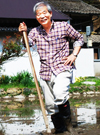 Koji Tanaka
Koji Tanaka
Southeast Asian Studies
Kyoto University Research Administration Office (KURA Office)
(Profile)
I retired from Kyoto University in the end of March 2010. Currently I oversee the university’s Hakubi project, a support program for fostering of young researchers. Unfortunately, I have never been to Sarawak, but I can imagine what’s like there from my experience in Kalimantan, Indonesia.
I have empathy with this project ever since Mr. Ishikawa shared the concept of the project with me before he applied for the grant. But as I don’t have experience in Sarawak, my standpoint in this project is not a collaborator but rather a supporter.
I have been interested in agriculture and forestry in the Southeast Asia and the management of biological resources. There are many agendas to be studied like the exchange activities among the ethnic groups along with rivers, logistics and the traffic of local people and various commodities, and rapid-expanding oil palm plantation.
I will look forward to hear the outcomes from the members of this project.
 Kyoko Sakuma
Kyoko Sakuma
Cultural Anthropology
Graduate School of Asian and African Area Studies (ASAFAS), Kyoto University
(Profile)
The trade of forest products in the Borneo’s indigenous societies has continued over the centuries. It plays a crucial role in the area’s interethnic relations and local economy.
In this area, environmental change has progressed at a quick pace in recent years. Many rain forests were turned into oil palm plantations, at the same time, nature reserves have been established. The changes in circumstances surrounding forests in this area pick up the pace more and more. My focus is on the transition of social relationships among the ethnic groups in this area which have been based on forest products economy.
In my research I have been focusing on upstream area and upriver products. This project, however, covers throughout an entire area from upstream to downstream for its study region. As it is beyond the scale of an individual research, I am thrilled to take part in the project.
Atsushi Kobayashi
Historical Science
National Graduate Institute for Policy Studies
(Profile)
I took an interest in Southeast Asia when I spent my time in Singapore. I wanted to understand the nation from a historical angle when I witnessed such small country people with different backgrounds living together side-by-side.
The study in Sarawak, I would like to take an approach that it has been, as a matter of fact, within the regional commercial zone of Singapore. I would trace that how the forest products of Sarawak in 19th century were collected in Singapore and where those products went from there. I will trace the distribution of those products by analyzing foreign trade statistics of that time.
Atsushi Ota
History of Early Modern and Modern Indonesia and the Malay World
Graduate School of Letters, Hiroshima University
(Profile)
I am a historian working on the Malay-Indonesian Archipelago, by examining Dutch, English, Malay, Javanese, and Chinese sources. I am interested in the roles of maritime migrants (Sea Peoples), who frequently moved their settlements, engaged in trade and collection of marine products. They had various origins (Malay, the Orang Laut, Bugis, Iranun etc.), but they were distinguished as a whole, called the strandbewoners and so on, from long-settled people in Dutch sources. They played an important role in trade and wars, and therefore contributed to the establishment of the political order and the development of trade networks in the region.
By examining the activities of these people, I am attempting to reconstruct the history of the region beyond national borders. In addition, I am interested in the production and trade of non-colonial products (local and Chinese export products, distinct from the mineral and agricultural products promoted with colonial capital in large scales) in the nineteenth-century Malay-Indonesian Archipelago. By focusing on these products, I attempt to reexamine the economic history, which has excessively concentrated on colonial products.
Daisuke Naito
Southeast Asia Area Studies, Political Ecology
Center for International Forestry Research
(Profile) I have picked up the case of the introduction of forest certification system at Sebauh, Malaysia to speculate the impacts of natural resources usage which is triggered by market mechanism. In this project I would like to pursue a comparative research on the systems of forest certification and oil palm.
 Jason Hon Shung Sun
Jason Hon Shung Sun
Animal Ecology
World Wildlife Fund, Malaysia
(Profile)
I grew up in the city of Kuching, in the Malaysian state of Sarawak. In 1999, I obtained my Bachelors Degree in Applied Science from University of Science, Penang, majoring in freshwater ecology. I then worked for 2 years as a Zoologist with the Sarawak Biodiversity Centre.
In 2002, I obtained my Masters in Ecology from Aberdeen University, UK. From end of 2003 to 2009, I worked with the Wildlife Conservation Society – Malaysia Program and conducted studies in various fields, notably surveys of primates, birds and bats. Towards the later half of my appointment, I was greatly involved in the research on wildlife in logging concession areas and forestry policies.
In 2009, I furthered my studies in Kyoto University under the sponsorship of Japanese Government (Monbukagakusho) Scholarship. Currently, I am attached to the Graduate School of Global Environmental Studies as a doctoral degree student.
My research topic is the utilization of key resources by wildlife (focusing on natural salt licks) in production forests environment in Sarawak. The study sites are a logging concession and a tree plantation area in Bintulu.
In Sarawak, other forms of forested environments also have crucial roles in the conservation of wildlife. In view of the large expanse of areas set aside for logging and forest plantations in Sarawak, efforts must be intensified to promote the conservation of wildlife in these areas.
 Yumi Kato
Yumi Kato
Cultural Anthropology, Ecological Anthropology, Ethnobiology
The Hakubi Project / Center for Southeast Asia Studies, Kyoto University
(Profile)
I have been studying the people and their way of living in the forest in Belaga, Sarawak. My study mainly focuses on their hunting and gathering life style: their nomadic way of life and their economy dependent on forest resources such as wild plants and animals.
As a rule, those people in the forest are unwilling to change their way of living even after the forest has been deteriorated due to logging. The same has been true when they have more options to make their living when a market economy has become dominant.
In this project, I’d like to make a research on the people who live in different forest environments; how much difference there is among the people in different types of forests in the economy and the use of wild animals.
I am looking forward to working together with other researchers who have different knowledge and backgrounds.
 Yuichi Kano
Yuichi Kano
River Ecology
Graduate Education and Research Training Program in Decision Science for a Sustainable Society, Kyushu University
(Profile) I have been working on the study of freshwater fish both at home and overseas. Sarawak has been one of those places I have longed for to do my research and now I am looking forward to encounter a variety of fishes at the rivers of Sarawak. I’d like to keep in my mind to see the environment and biodiversity of Sarawak outside the box not only from the pointview of ecology but with multiple points of view.
Yayoi Takeuchi
Ecology
National Institute for Environmental Studies
(Profile) The subject of my research is the diversity of tree community and breeding biology of Southeast Asian tropical forest. In this project I will focus on the land use of swidden agriculture in Sarawak: its biological significance especially how does it contribute to the conservation of biodiversity in Sarawak. I am looking forward to collaborate with researchers of sociology to find the transition of farmland for swidden agriculture and what impact dose it have upon people’s mind and their values.
 Kuniyasu Mokudai
Kuniyasu Mokudai
Geomorphology
Pro Natura Foundaition Japan
(Profile) For my graduate study I picked up geological structure of large-scale landslide and its landscape. At Terrestrial Environment Research Center(TERC), University of Tsukuba (current Center for Research in Isotopes and Environmental Dynamics, University of Tsukuba) continued the study of river and experimental geomorphology. Later took a position as a scientific communicator at Geological Museum, National Institute of Advanced Industrial Science and Technology (AIST). Currently working at Pro Narura Foundation Japan as a chief scientist.

